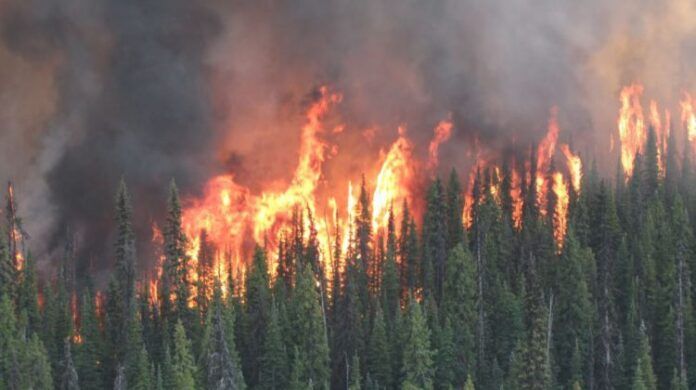The B.C. government has announced the launch of an expert task force on wildfires, drought, heat, floods and other emergencies.
Premier David Eby said this comes amid a record-breaking wildfire season.
“With the profound effects of climate change, this year’s unprecedented wildfire season has had a devastating impact on people in British Columbia,” said Eby. “Hundreds have lost their homes, tens of thousands were forced to evacuate and two heroic young B.C. firefighters tragically lost their lives.”
Eby notes that efforts are pointed at dealing with the current situation for now.
“Our immediate focus remains on fighting wildfires as well as helping people and communities contend with the impacts of drought,” said Eby. “Additionally, we must continually update and enhance our prevention and response measures to the near-constant series of emergencies we are facing as a result of climate change.”
The expert task force will determine how to simultaneously support those on the front lines and apply what has been learned to prepare for the next emergency.
“The expert task force on emergencies will provide advice to increase local volunteer recruitment, to further collaborate with communities and First Nations, to incorporate municipal firefighting and other emergency forces, to deploy enhanced technology, and to provide constant support to those on the front lines,” said Eby. “The task force will also provide ways to address the need for more accessible support for evacuees, with specific attention to timely access to short-term financial supports and accommodation.”
Eby emphasized the importance of being ready for anything.
“This has been the worst wildfire season our province has faced and while we are coping with a historic drought, we must be ready for the risk of severe flooding later this year,” said Eby. “These crises are indeed scary for many people and government will be there to adapt and immediately support people, no matter what we face, together.”
“We owe it to all of those who fought the fires, left their homes behind, and opened their hearts to feed and house evacuees to find ways to support them better as climate disasters get worse and more frequent,” concluded Eby.




